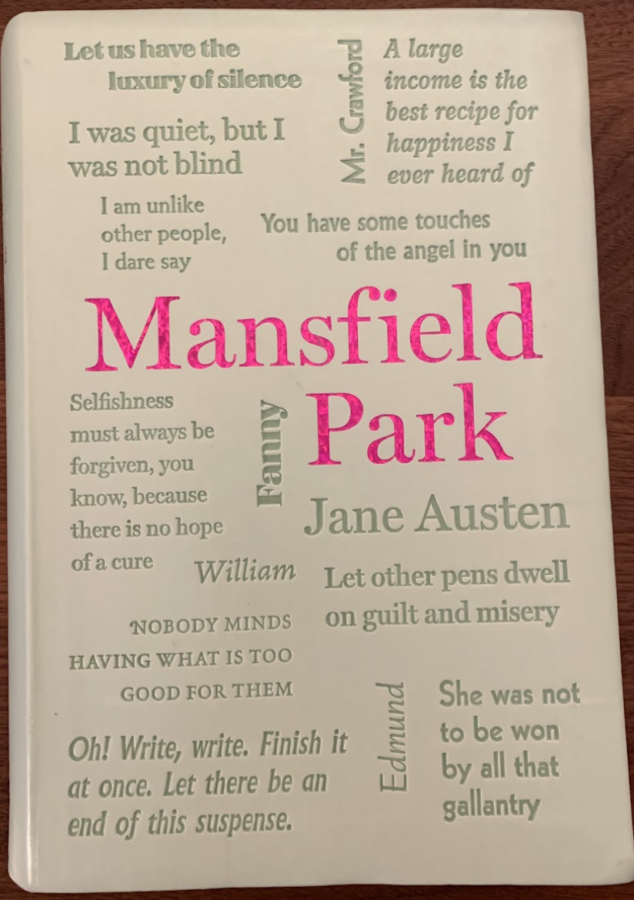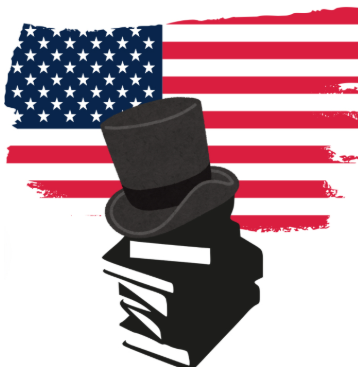Matrimony, misjudgment, and mistreatment
Jane Austen’s less popular Mansfield Park is not one to be skipped
Could there be anything more exciting than being invited to live with wealthy relatives on a gorgeous estate in Northamptonshire, England? Mansfield Park by Jane Austen explores that question precisely, only to find that it is not as perfect or orderly as it sounds.
Fanny Price, one of an impoverished couple’s many children, is invited by her wealthy relatives to come live and grow up at Mansfield Park, the flourishing countryside estate that belongs to Sir Thomas Bertram, her uncle. Fanny is sent away from her struggling parents and enters the world of high society at the age of ten, moving in with her four cousins who find the presence of less fortunate Fanny insignificant, with the exception of Edmund Bertram, the second son of Sir Thomas Bertram. Edmund’s care for Fanny, however, is not enough to shield her from the low rank she is given among the Bertrams and their friends, Mary and Henry Crawford. As a result, Fanny is often not involved in conversation, pushed to the side by her Aunt Norris to do work during social gatherings, not permitted to be out and about in society, and is not expected to ever marry. Altogether, Fanny grows up into a timid, quiet, yet pretty young woman.
Despite Fanny growing up in a sphere considered to be far superior to her own, and among company that enjoys reminding her of that fact, she is never afraid to stand up for what she believes is right. In fact, it becomes clear that even if her opinion and thoughts are not taken seriously, her mind and moral compass are sharper than those of her privileged relations, even her close friend Edmund. Even when pursued by a handsome and wealthy suitor, an opportunity Fanny and the Bertrams never could have imagined, she stands with her feet deep in the mud and rejects it, even though 19th-century female standards would require her to accept the flattery. And in the end, Fanny’s decision to walk the unbeaten path is the right one.
Besides Austen molding another witty and kind main character, she sparks conversations on class structure and even the British slave trade. Fanny’s character highlights the tensions between classes in British society in the early 1800s, shining a light on the privileges and simple luxuries only granted to those of high stature and class. Stark differences in the opportunities and privileges offered to Fanny’s wealthy female cousins and Fanny herself also indicate the inequality women of different classes experienced. Another notable decision of Austen’s in Mansfield Park is to reference the British slave trade, something not done within any of her other novels. While the book by no means takes on the subject progressively, it provides a slight reminder of where much of British high society’s wealth stemmed from, including the Bertram’s.
Beyond Fanny’s character and Austen’s comments on British society, the suspense Austen creates up to the end is what ties the bow on Mansfield Park. As it can be presumed for all of Austen’s books, the main character, and therefore Fanny, must end up with the perfect suitor. Unlike relationships like Elizabeth Bennet and Mr. Darcy in Pride and Prejudice, however, the reader is unaware of who Fanny is to wed until the very end.
Mansfield Park ticks all the boxes of an enticing and unexpected regency romance novel. Fanny will be appreciated by any reader, with her wit and thoughtfulness in a community set against her. A quality of surprise, a 19th Century backdrop, and Fanny Price herself, make the book a perfect read for someone in the market for a slow love story with a sweet ending. Mansfield Park is yet another Austen masterpiece, gracing readers with a bit of both societal turbulence and the calm British countryside.

Sabine is a senior and the Blueprint's School Editor. As her second year on the paper, she is looking forward to being a part of the Blueprint team again...





